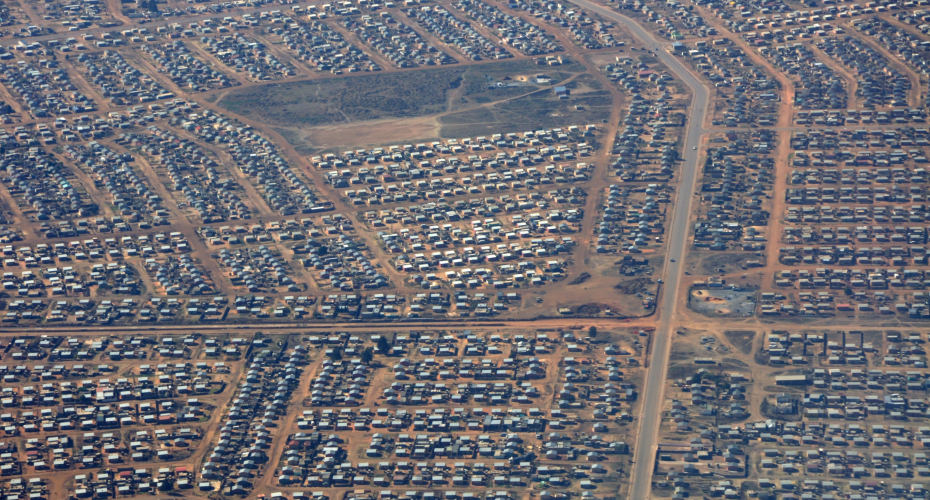A generation of women in South Africa have collectively pushed from their memories apartheid-era sexual violence in a cultural process of 'unremembering'.
New research has found that historic crimes committed against women in Black communities have been forgotten or suppressed by cultural forces, including prevailing attitudes that such attacks are either a modern crime or were solely perpetrated by agents of the apartheid state.
Remarkably, some women hold these views even though they were the victim of sexual violence during the era, or knew a family member who was.
The research by the University of Exeter is the first to explore women's understandings and experiences from the apartheid era, compiling a series of oral histories from those living in two townships at the heart of violence and unrest in the run-up to the country's 1994 election.
Published in the journal Past & Present, the research has, the authors say, implications for the current focus on sexual violence in contemporary South Africa.
"South Africa has become notorious for its high rates of domestic violence, rape and femicide," says Dr Emily Bridger, of Exeter's Department of Archaeology and History. "We know from past research that these issues are not new to the post-apartheid era but have deep roots stretching into the country's colonial and apartheid past. Yet when asked to reflect on historic sexual violence in oral history interviews, Black women repeatedly told us that life in apartheid South Africa was devoid of rape - even when such statements contradicted their personal experience."
The study has been made possible by a UKRI Future Leaders Fellowship awarded to Dr Bridger in 2020. Over a period of four years, she and Kefuoe Makena, a Black South African research associate, conducted more than 70 interviews with women living in Thokoza and Katlehong. These are both townships located southeast of Johannesburg and were subject to intense political violence from 1990 to 1994 in the lead-up to South Africa's first democratic elections.

Most of the women interviewed were members of the Khulumani Support Group, a civil society organization founded in 1995 to support victims of apartheid-era human rights abuses. All were born during the period spanning the 1940s to the 1970s, with two-thirds of them moving to the townships from rural areas, either for work or to live with husbands.
The interviews were sensitively designed to explore what place, if any, sexual violence occupied within the women's broader memories of apartheid and its aftermath, rather than to retrieve any untold stories of previously hidden trauma. The women were asked about their experiences of childhood, relationships, marriage, domestic life, crime and political violence, before turning to their general understanding of sexual violence, how prevalent it was, and who was perpetrating it?
More than half of the interviewees said there was no or very minimal rape during apartheid, or that rape only came to their communities in the 1990s. Yet approximately a third of them spoke openly about their own or their immediate relatives' personal experiences of intimate partner violence, coerced sex or rape. And in some cases, the same person held this contradictory view and experience.
Dr Bridger said four cultural factors had shaped this process of 'unremembering' the past, with the first relating to the suppression and silencing of rape by families, communities and the police during apartheid. This resulted in incidents being dealt with privately between families or kept secret due to societal shame.
The second reason concerns the meaning of the term 'rape' as it was applied during the apartheid era, when it referred to a crime involving a more specific set of circumstances. Sexual violence - including what a contemporary audience would understand as rape - was often expressed in the media and other forms of communication in neutralised terms such as 'forced love'.
Dr Bridger said: "The harm done through this refusal to name was summarized by a 60-year-old interviewee from Soweto who, in contrast to other women, recognized the existence of past sexual violence. As she explained, 'In the olden days, this gender-based violence was there. But it had no name, because no one cared about it'."
The third reason, say the authors, is that the history of sexual violence has been obscured by the dominant historical narrative of South Africa's emergence from the oppression of apartheid. Sexual violence committed during the era was politicised as a result and led to claims that it was only perpetrated by those linked to the apartheid state.
The fourth and final explanation for this amnesia is that the current focus on rape in contemporary South Africa has not only resulted in an erasure of past historic sexual violence but has produced a nostalgia for that past.
"Despite significant evidence of the widespread perpetration of rape across South Africa's racial and class divides during apartheid, older Black women living in Thokoza and Katlehong predominantly characterized the apartheid past as a period without or before 'rape'," concludes Dr Bridger. "This process of collective unremembering is not unique to these women; we see it at work in South Africa more widely and other countries where sexual violence has been used as a political weapon."
(Un)Remembering Sexual Violence in South African History is published in the current edition of the journal Past & Present.






